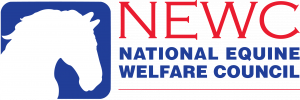

Redwings is thanking everyone who has signed their fireworks petition and calling on them to ‘help keep up the pressure’, after 58 MPs spoke at a fireworks debate on Monday (19th January).
The charity’s UK Government and Parliament petition was one of two which were the subject of a three-hour scheduled session, in a full-to-bursting chamber at Westminster Hall, London.
Redwings’ call for changes to legislation to limit the maximum noise level of consumer fireworks has reached over 183,000 signatures. A petition started by dog owner Robert Branch calling for fireworks to be restricted to council-run events has reached over 194,000.
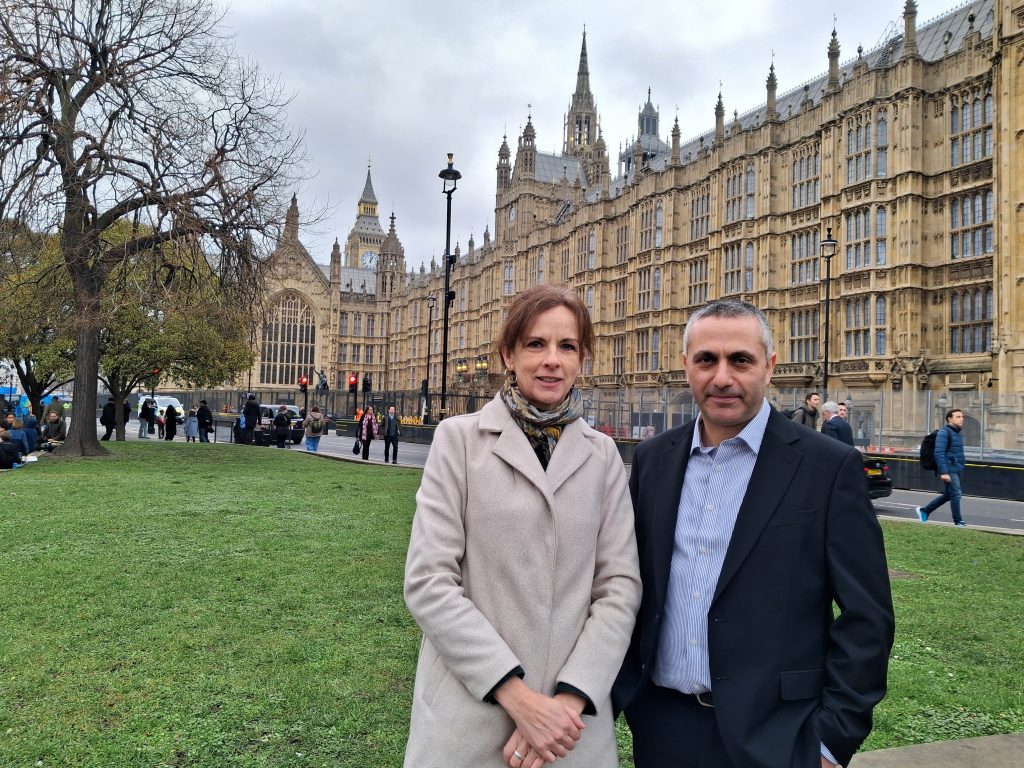
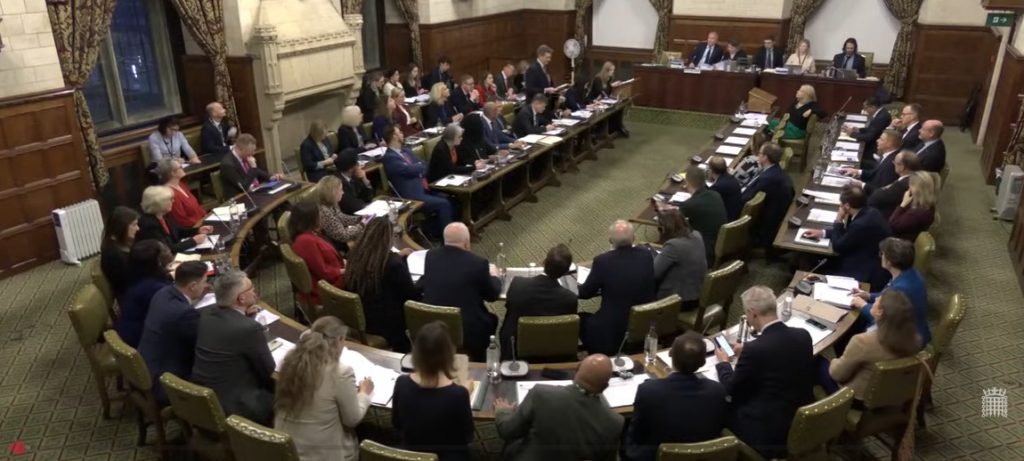
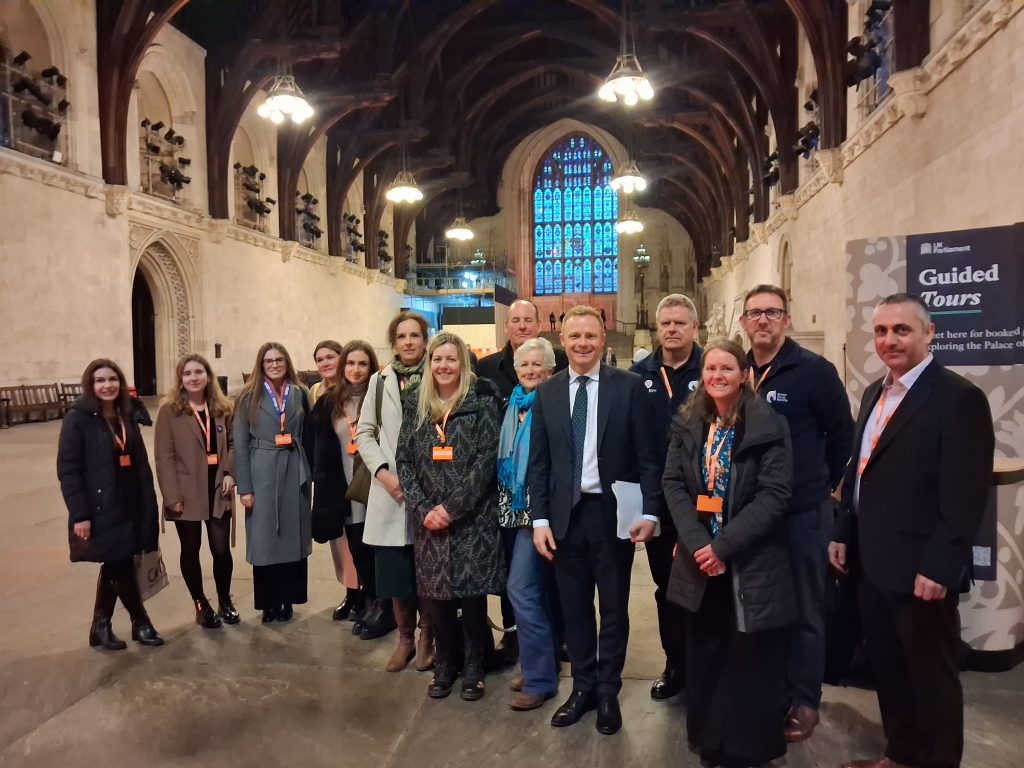
Helen Whitelegg, Campaigns and Policy Manager at Redwings, said: “The debate was extremely well attended and overwhelmingly positive about the need for urgent change. In fact, there wasn’t a single voice in opposition present.
“Powerful stories of tragic incidents and traumatic experiences were shared by MPs, including those involving animals, like King, the foal who became impaled on farm machinery in Riddlesden, West Yorkshire, because of fireworks.
“Lizzie Collinge MP told of her constituent Stephen, whose previous guide dog, so frightened by fireworks, dragged him across a main road in a desperate attempt to get away from the noise.
“Sarah Dyke MP told of twenty cattle who were frightened and escaped when fireworks were let off near a dairy farm. One heavily pregnant cow died, another had to have treatment and never recovered.
“Helen Maguire MP shared her own experience of being an army veteran triggered by the noise of fireworks after her return from Iraq.
“Robbie Moore MP, who introduced the debate, told of elderly men with Alzheimer’s disease trying to leave their care home because they felt unsafe, while others were crying and distressed.
“Calvin Bailey MP spoke about an incident of anti-social behaviour where fireworks were thrown at a woman and her small children on a high street. The children spent the evening cowering under a table, suffering trauma.
“There was a lot of passion and frustration during the discussion, reflecting the perceived lack of Government action on this issue and the almost annual scheduling of a petition debate.”
Justin Madders MP said: “We have had these debates year on year. I remember being sat across the Chamber while we were in opposition, I remember being sat in the Minister’s seat a year ago, and now I am here again. Every year, we get more and more Members attending, and more and more members of the public demanding change. I think the case has been made that it is now time to act.”
The Minister present, Parliamentary Under-Secretary of State for Business and Trade Kate Dearden, was unable to give a timeline or strategy of what will happen next, but assured those present that she had heard their concerns and would be asking for better regulations and urgency of action. She said: “We will continue to gather evidence and continue to hear from organisations, charities and campaigners to ensure that any changes to legislation are effective.”
Though this may have been disappointing, Helen says it was not unexpected: “The aim of a debate like this is to get this evidence in front of a Minister, which we achieved thanks to everyone who has supported us by signing our petition and contacting their representatives.
“As frustrating as it is for all of us who care about this issue, change takes time and the Minister has indicated her willingness to meet with us, which we’ll of course be taking her up on.
“We’ll be continuing to work with Robert, who started the other petition after his family dog became so terrified of fireworks they had to move house, and Alan Smith, who has been a tireless campaigner since his mother was killed by a firework posted through her door, both of whom we’ve been brought together with through this work.
“We’re an active part of the Fireworks Impact Coalition of 19 charities, highlighting the impact of fireworks on people as well as horses and other animals and will be continuing to contribute to research and data collection so that we can evidence the impact of fireworks.”
Helen added: “We have lots of activities planned for 2026 and encourage people to sign up to our campaigns mailing list to receive updates and find out how to get involved.
“Campaign supporters have got us this far and we need their help to keep up the pressure. Keep signing relevant petitions. Don’t sign fewer, sign more, and keep writing to your MP.”
To find out more about Redwings’ work on fireworks please visit: redwings.org.uk/fireworks
Just a few days before Christmas, The Donkey Sanctuary led several organisations in the rescue of six mules and two ponies, who were living on an exposed hillside in rural South Wales.
Responding to a request for operational support from the Lluest Horse and Pony Trust in Carmarthenshire, The Donkey Sanctuary was able to call on fellow National Equine Welfare Council (NEWC) members to provide urgent assistance to move the equines to safety following the death of their owner.
A team of nine from The Donkey Sanctuary, including Donkey Welfare Advisers, a vet, a lorry driver and donkey care staff, alongside staff from Lluest, The Mare and Foal Sanctuary and a vet from Redwings, worked together on the day to ensure a positive outcome for the equines. To help confine the equines and allow the teams to work safely, specialist handling pens were needed. The Mare and Foal Sanctuary brought one set to the site, and though not able to attend themselves, World Horse Welfare provided a second set, without which the rescue would have been much more challenging.
The six unhandled mules, a Shetland stallion and a pony mare were living on an exposed hillside with very little shelter from the elements. One mule in particular had severely overgrown hooves and required urgent veterinary assessment and specialist farriery care.
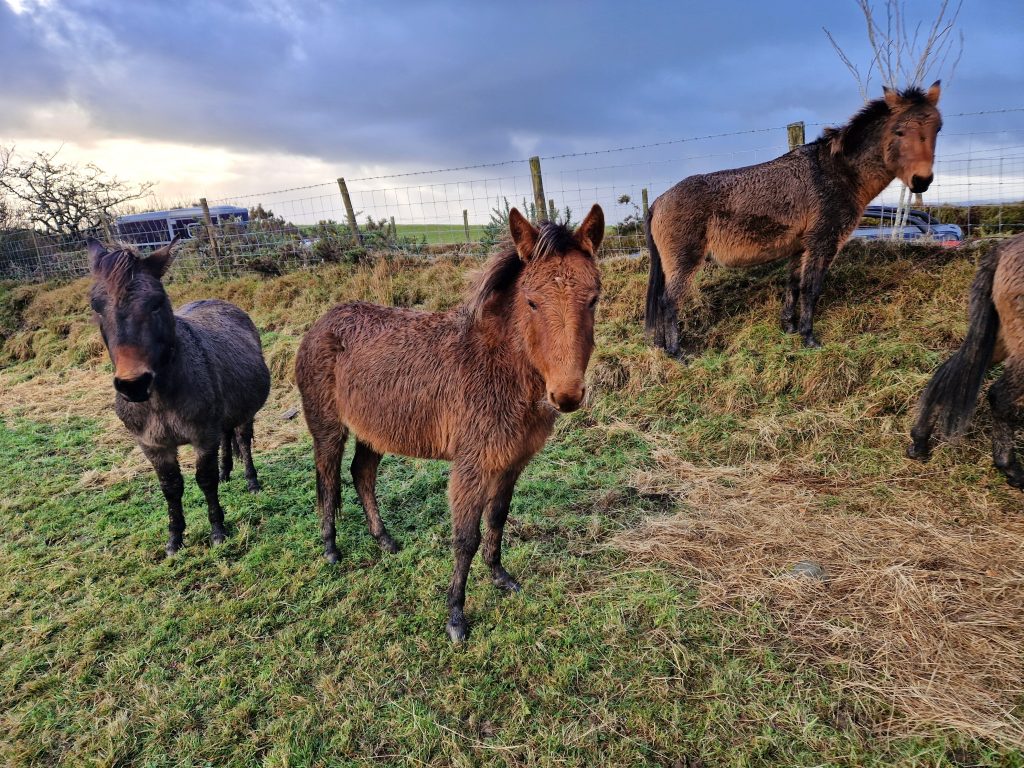
As a result of a successful operation, all eight equines were safely transported to the Lluest Horse and Pony Trust, where they are now receiving the care, shelter and attention they so desperately needed.
Hannah Bryer, Head of Welfare at The Donkey Sanctuary and a Director of NEWC (National Equine Welfare Council), said: “This was a complex operation in challenging conditions, but thanks to the collective teamwork, experience and compassion of several organisations, the mules and ponies will now benefit from immediate care, veterinary and behaviour support at Lluest. In the longer term, The Donkey Sanctuary will continue to offer advice and support during the rehabilitation of the mules”
“This is a brilliant example of working together, sharing resources and expertise to ensure a positive outcome. Being able to call on fellow NEWC members is instrumental in allowing us to reach equines in urgent need of help.”
Dionne Schuurman, Equine Manager at Lluest Horse and Pony Trust, said: “These mules and ponies were living in extremely exposed conditions at one of the harshest times of year, with no one able to meet their ongoing welfare needs. Getting them to safety while causing minimal stress was critical.
“We’re incredibly grateful to The Donkey Sanctuary and our fellow welfare partners for their professionalism, compassion, and teamwork. Thanks to this joint effort, all eight equines are now safe, sheltered, and beginning the careful process of assessment and rehabilitation.”
The rescue is a reminder of what can be achieved by the collaborative efforts of organisations that put animal welfare first, which is particularly poignant at this time of year.
Pam Moon has been a member of the Donkey Breed Society for almost 50 years. She has served on several of the committees, is on the A Panel of Judges and is also Registrar for the Society.
Pam owns 6 of her own donkeys and also looks after some for the Donkey Sanctuary. She has a wealth of experience with showing, driving, welfare, behaviour and care of the donkey.
Pam steps into the Chair of the Donkey Breed Society, taking over from Rosemary Clarke and by Pam’s own admission, has huge boots to fill.
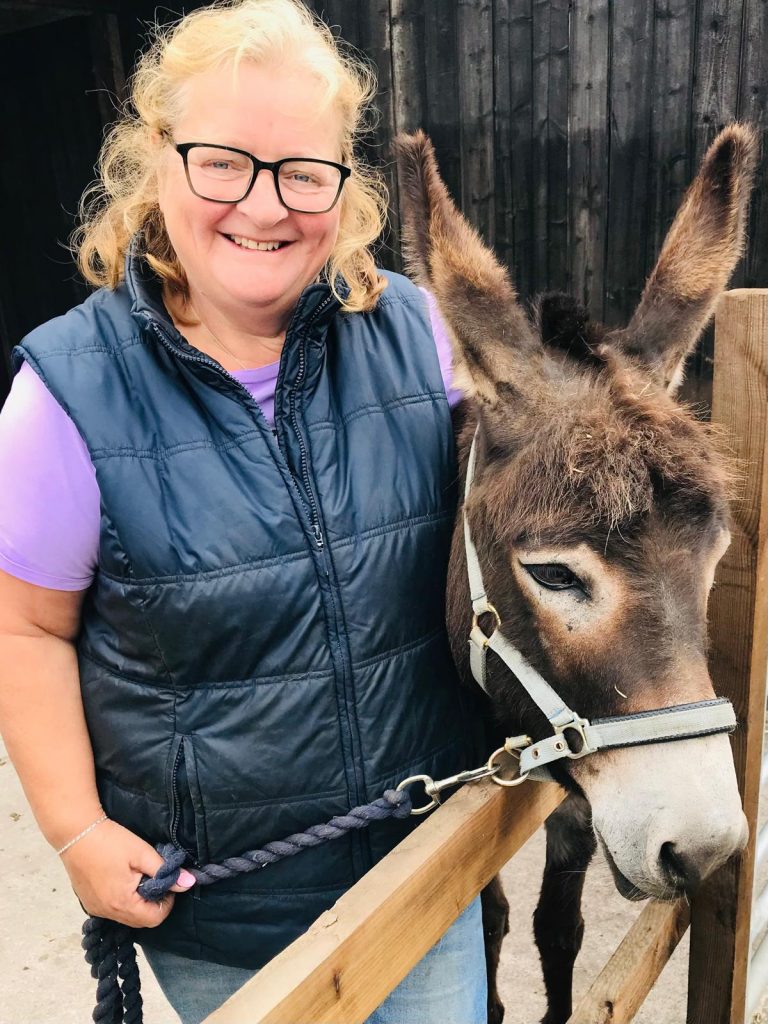
After many years as a Welfare Adviser working for the Donkey Sanctuary, covering a vast area in the North West area, Pam decided to step away from all the travelling and set up her own business, Pet Boarding for small animals, from her home in Preston.
Pam was introduced to donkeys as a teenager through a school friend and has maintained that love and devotion to them ever since. So many friendships have been formed through like-minded people. Pam is the first port of call for friends needing a level-headed and practical hand with their donkeys.
The future of the Donkey Breed Society is in safe hands; Pam is planning on working hard to bring a new impetus to the members and build on strong foundations, embracing fresh ideas to encourage and enhance memberships.
To contact Pam, chair@donkeybreedsociety.co.uk or telephone 07842 535993
The Donkey Breed Society encourages activities with your donkey – they are intelligent, curious creatures that enjoy attention – many can be trained to go for walks, agility, being ridden by small children, driving and showing – a busy donkey is a happy donkey. The Donkey Breed Society holds many social events, helping owners to give their donkeys the best experiences in a safe and friendly way.
The Donkey Breed Society has a network of Area Representatives throughout the country who are on hand to encourage both owners and non-owners to join like-minded people.
For the third consecutive year, equine welfare charities including the RSPCA, Redwings Horse Sanctuary and World Horse Welfare, in partnership with the Commoners’ Association, have carried out a two-day welfare operation as part of an ongoing project to improve the lives of the ponies who call the area home.
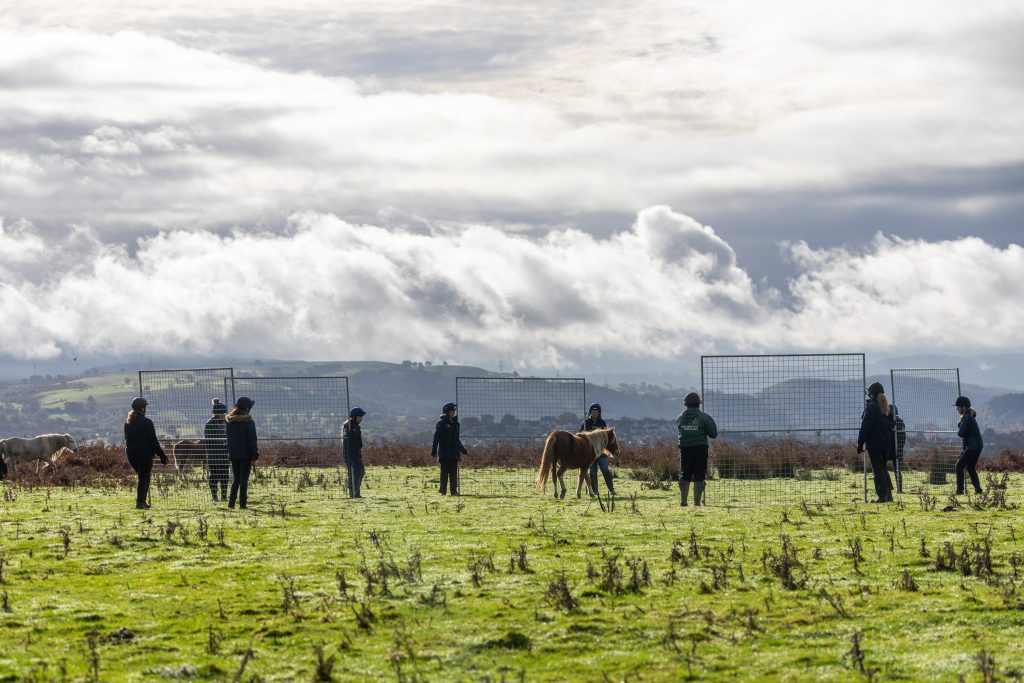
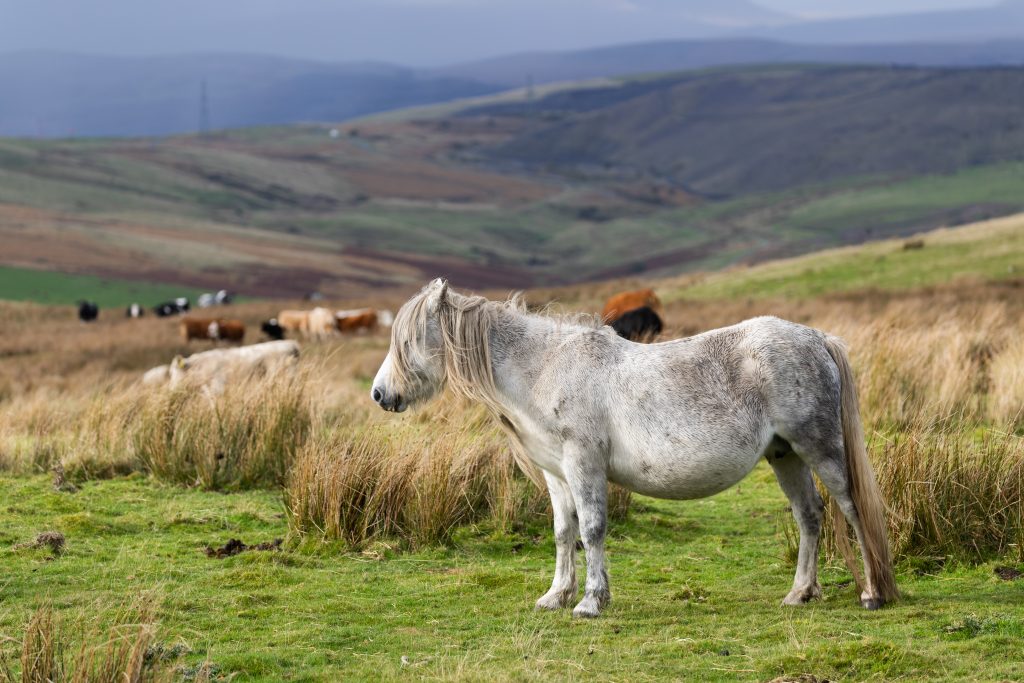
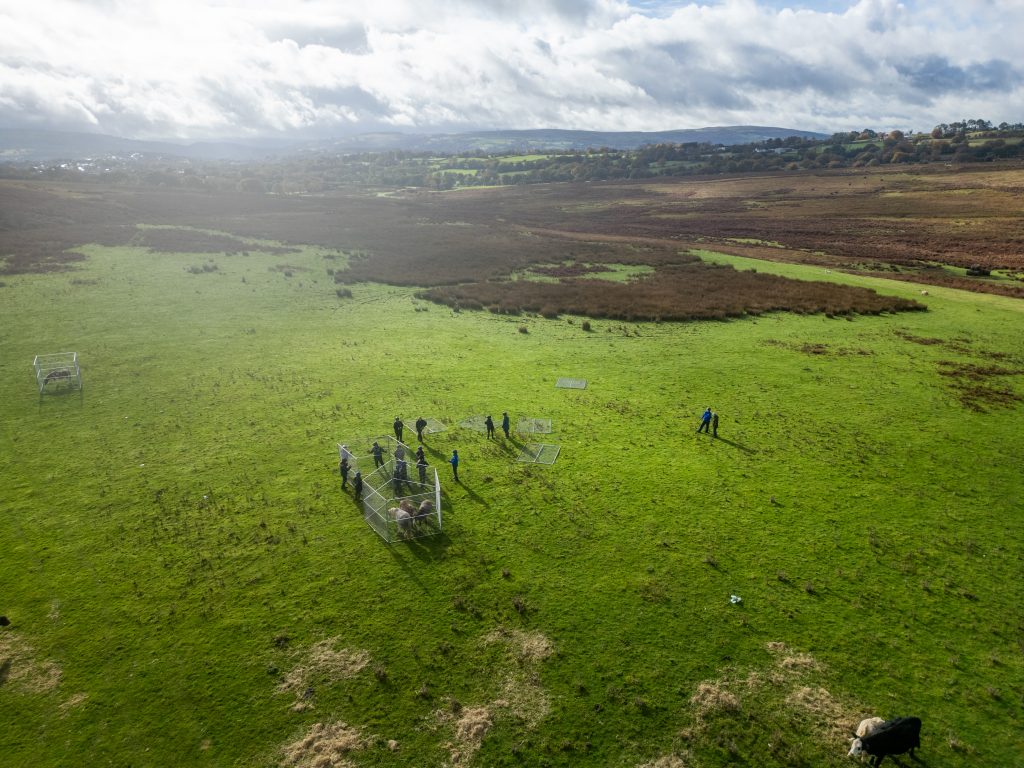
Assisted by staff from Blue Cross, Bransby Horses, the British Horse Society, HorseWorld, The Mare and Foal Sanctuary and The Donkey Sanctuary, the charities removed 38 young ponies to help relieve grazing pressure before the challenging winter months. More than 50 staff from the organisations were involved in the coordinated effort, which forms part of a wider, long-term initiative to create a sustainable and healthy herd on the common.
At the end of September, a team from World Horse Welfare and volunteers from the local group, Hungry Herds, carried out a drone headcount of the ponies. After reviewing the footage, 182 ponies were counted. Most are unowned, the result of past abandonments and unchecked breeding. The ponies live as semi-feral herds, meaning they are not accustomed to human handling.
In this operation, 18 ponies went into RSPCA care, 11 to World Horse Welfare, 5 to Bransby Horses, and 4 to HorseWorld. This operation is part of a broader strategic plan to manage the herd sustainably, including cataloguing all ponies and removing those most likely to thrive in private homes.
So far, the charities — all members of NEWC — have removed 134 ponies from the common, with many rehomed through their respective centres. This operation highlights how NEWC member charities collaborate to support equine welfare initiatives and achieve the best possible outcomes for horses and ponies in need.
Roxane Kirton MRCVS, RSPCA Head Vet (Equine), said:
“The project aims to reduce the numbers of semi-feral horses on the common in a way that supports good welfare for all the ponies. Pooling the expertise of the organisations, we are developing a population management plan that reduces indiscriminate breeding.
Whilst it might seem that castrating the stallions would be the easiest choice, the unique situation of these ponies makes this anything but straightforward. As the ponies are semi-feral, they cannot be handled to ensure they get sufficient aftercare, meaning risks of castration are much higher. Mares also control the fertility and breeding rate of a herd, so castrations would only address the unchecked breeding if we could guarantee that no entire males were grazed, or abandoned, on the common going forwards.”
Nic de Brauwere MRCVS, Head of Welfare and Behaviour at Redwings and NEWC Director, said:
“As part of the project, we are removing youngsters over a year old, who are beginning to wean naturally from their mothers. These ponies are less likely to have negative associations with people and have yet to develop deeply ingrained habits of semi-feral life. They are therefore most likely to adapt to domesticated life and go on to be rehomed as loved companions or ridden ponies. It also means that we remove breeding stock of the future, helping to break the cycle of indiscriminate breeding.”
Claire Gordon, Chief Field Officer at World Horse Welfare and NEWC Director, said:
“Now in its third year, our proactive work with the Commoners’ Association continues to improve pony welfare. Being able to carry out a headcount using drones has provided more accurate data on the impact of our efforts, and it’s been encouraging to see the results so far — reduced grazing pressure has left the ponies in noticeably better condition and better prepared for the winter ahead. We’ve been really pleased with the progress of the ponies who’ve been rehabilitated and rehomed through World Horse Welfare’s centres so far, and we look forward to seeing the next group of ponies flourish.”
Huw Williams, Chairman of the Gelligaer & Merthyr Commoners’ Association, said:
“The Commoners Association is pleased to continue our work with the charities to protect the ponies on the common and to work towards a future where there will be sustainable numbers of healthy ponies.”
To find out more about the Gelligaer project, or support the charities involved, please visit their websites.
The NEWC Board received some wonderful nominations for our second year of Annual Awards – thank you to everyone who took the time to recognise colleagues, volunteers, and fellow members. The winners were announced at our AGM on 19th September, highlighting the incredible work and achievements made by individuals and teams across our member organisations.
“The NEWC Annual Awards are a chance to shine a light on the incredible dedication and compassion shown every day by those working to improve equine welfare. This year’s winners and nominees remind us of the power of collaboration, expertise, and perseverance across our network. Their achievements not only make a real difference to horses and ponies, but also inspire us all to keep striving for the highest standards of welfare.”
— Carolyn Madgwick, NEWC Chair
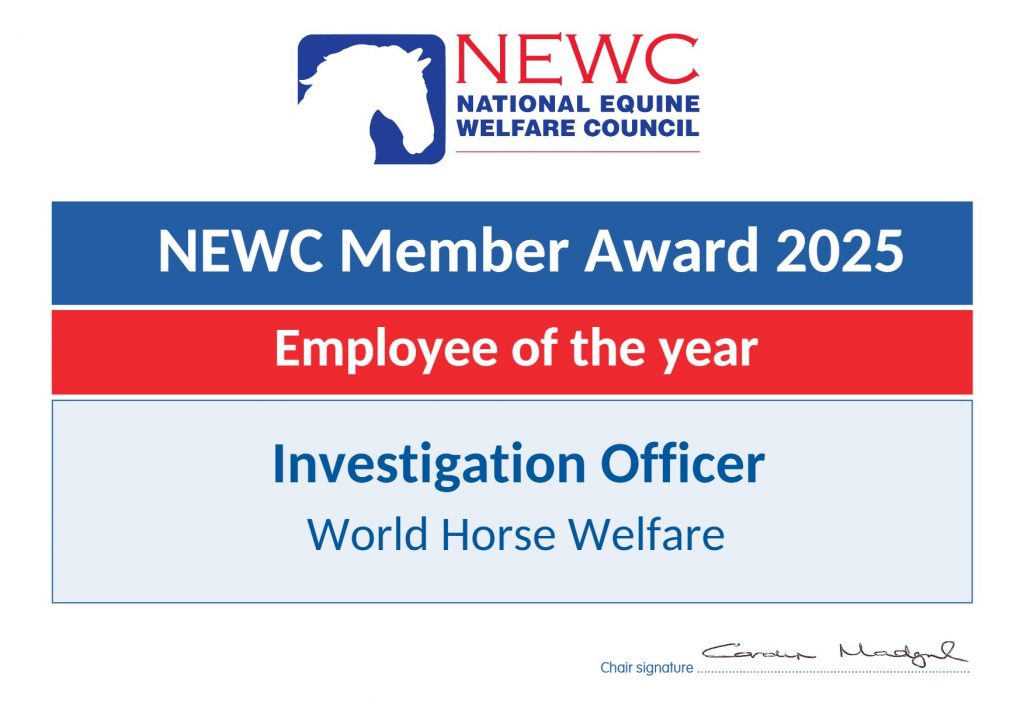
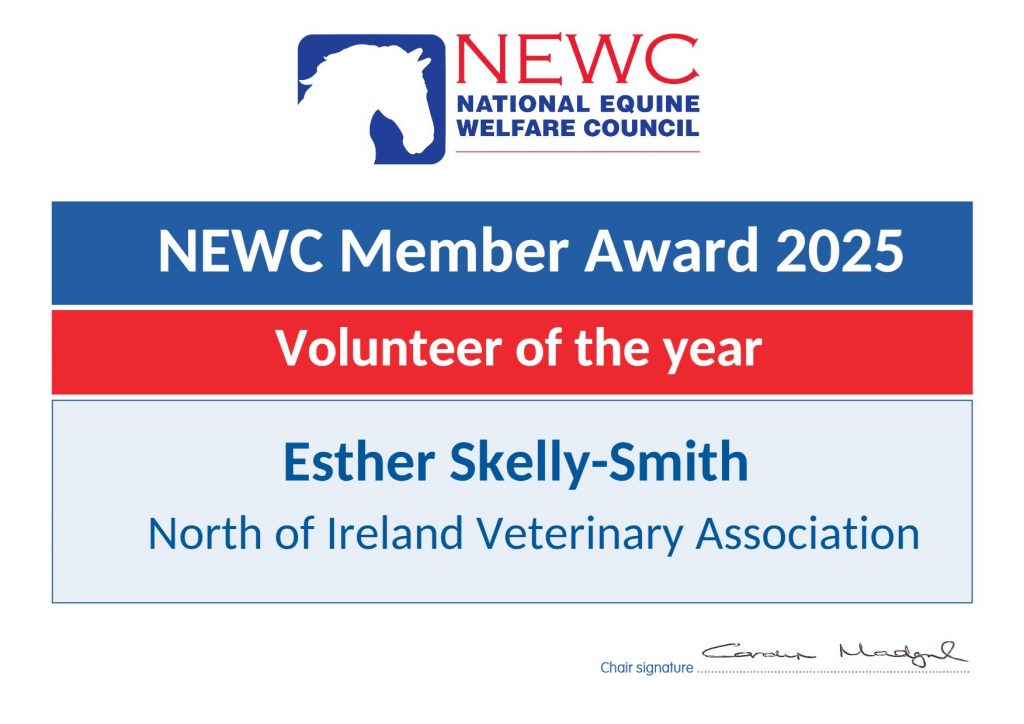
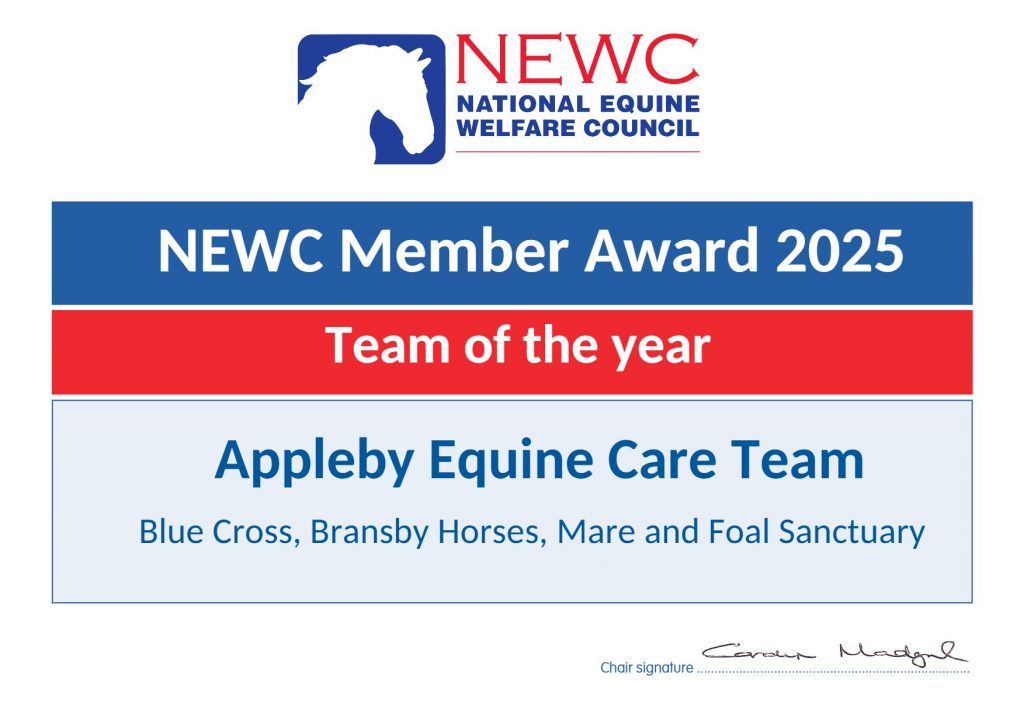
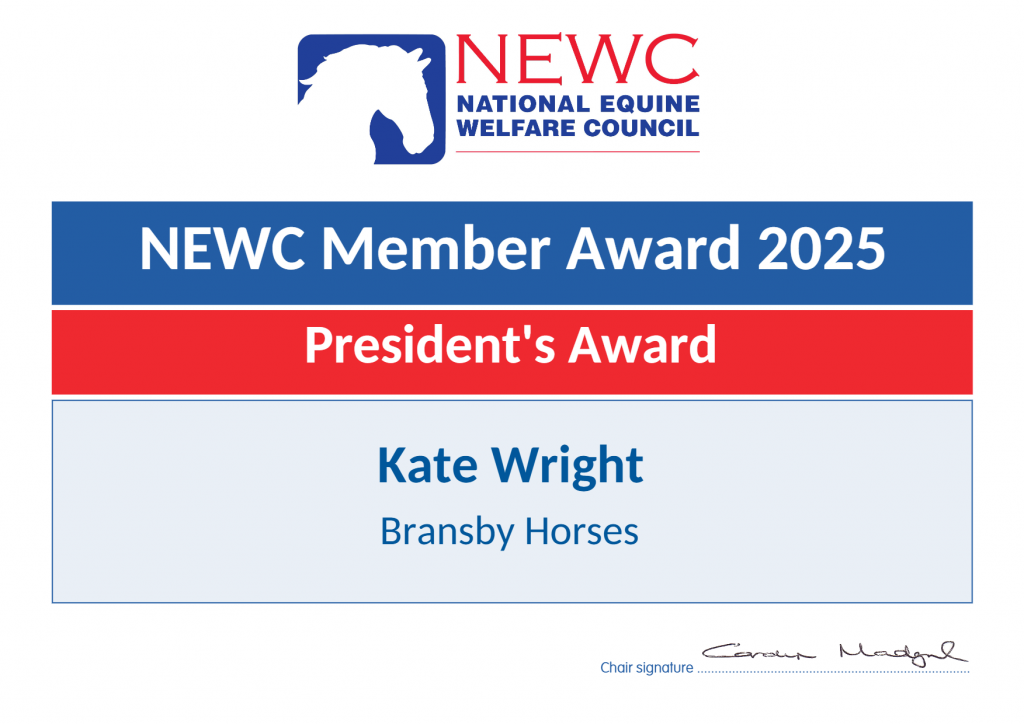
Team of the Year – Appleby Equine Care Team (Blue Cross, Bransby Horses, and Mare and Foal Sanctuary)
This year’s winning team demonstrated extraordinary collaboration, seamlessly working together despite being drawn from different organisations. At the busy and challenging Appleby Horse Fair, they provided exceptional care to equines, supported vets and welfare inspectors, and ensured timely and safe transport for animals needing intervention. Their professionalism, compassion, and resilience shone through in an environment that is often fast-paced, congested, and unpredictable. It was inspiring to see new and experienced members working side by side as if they had been a team for years, reflecting the strength and community of the NEWC network.
Employee of the Year – Investigation Officer (World Horse Welfare)
Recognised for 20 years of exceptional service, this officer has been pivotal in improving equine welfare across the UK and beyond. From complex investigations to influencing national policy, their determination and compassion have led to lasting change, including improvements in equine traceability, welfare in the meat trade, and transport legislation. The impact of their work is clear and far-reaching.
Volunteer of the Year – Dr Esther Skelly-Smith (North of Ireland Veterinary Association - NIVA)
Esther has been an outstanding advocate for equine welfare in Northern Ireland and across the British Isles. She organised the first all-island Equine Welfare Symposium in 2023, bringing together horse owners, vets, farriers, charities, and government representatives. Through follow-up reports, stakeholder meetings, and ongoing initiatives, Esther continues to champion equine welfare, ensuring that discussion and action remain high on the agenda.
President’s Award – Kate Wright (Bransby Horses)
Since joining Bransby Horses in 2022, Kate has shown exceptional dedication to equine welfare. Drawing on skills from a 30-year military career, she has handled complex cases involving animal hoarding, owner incapacity, and challenging welfare investigations, often collaborating with police, local authorities, and other charities. Her perseverance, empathy, and professionalism have safeguarded hundreds of equines in Lincolnshire and beyond, making her a true ambassador for the sector.
Looking Ahead – NEWC Annual Awards 2026
Entries for next year’s Annual Awards will open in the New Year, with winners announced at the AGM. We encourage all members to get involved and share the remarkable work your teams are doing.
Concerns were raised by members of the public in May 2024, which prompted action from The Mare and Foal Sanctuary and World Horse Welfare. Welfare officers discovered several semi-feral herds of Icelandic horses. There was unmanaged breeding, with pregnant mares living alongside fighting colts and stallions. Some were found with life-threatening injuries. High worm burdens, especially among young horses, posed a major concern, with some random samples showing levels in the thousands. Excessive worms can lead to malnutrition, poor growth, colic, and other health problems, making it crucial to manage parasite control to keep the horses healthy and thriving.
All of the organisations involved are proud members of the National Equine Welfare Council (NEWC). This operation exemplifies how NEWC members work together to achieve the best possible welfare outcomes for equines in need.
The equine charities worked together with the RSPCA across several sites in Devon. As the owner cooperated, horses were signed over in stages over several months to the three charities.
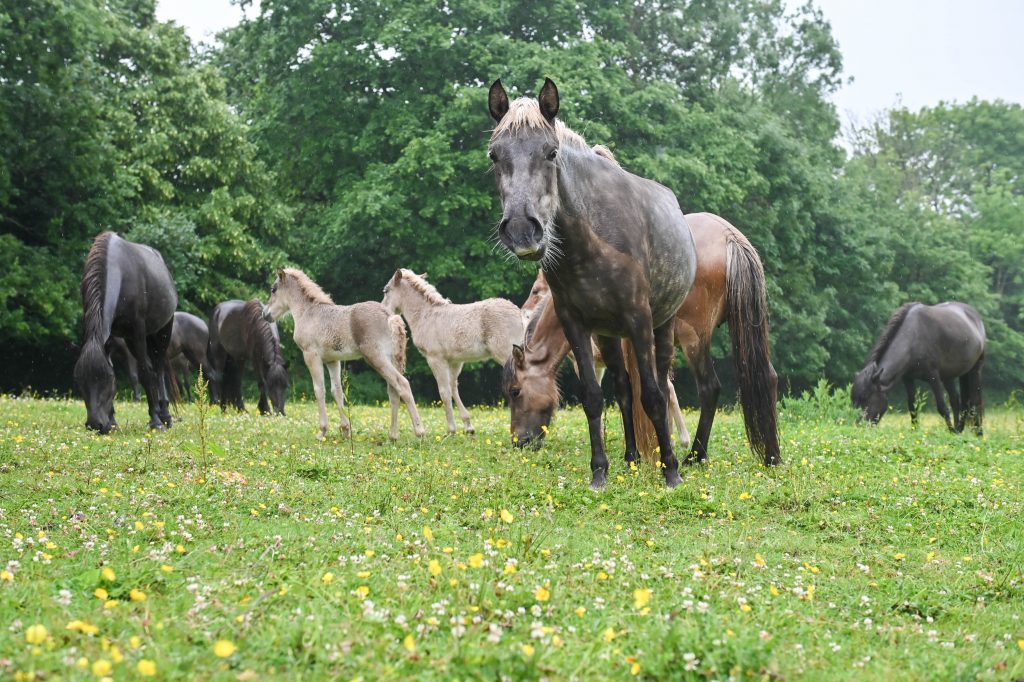
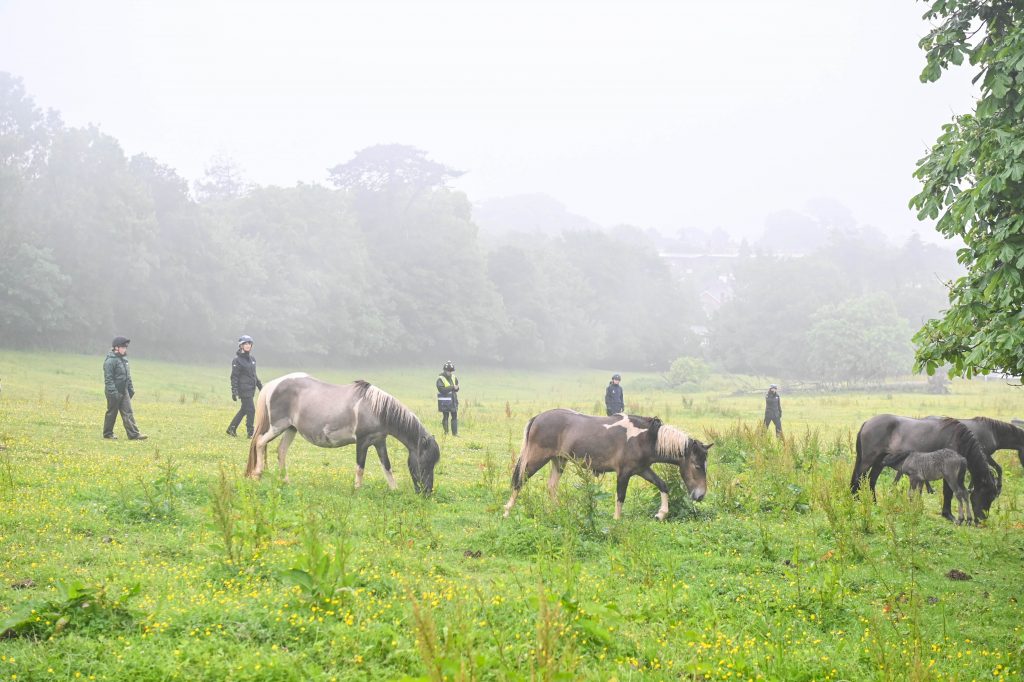
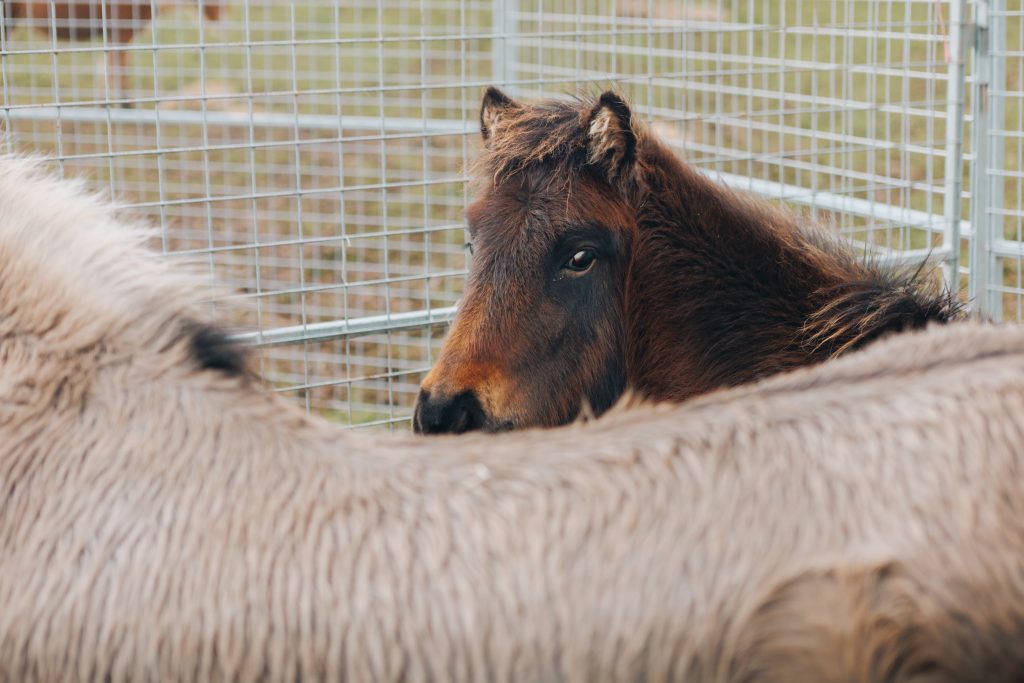
Two additional charities, The Donkey Sanctuary and Redwings Horse Sanctuary, supported the operation with extra transport, equipment and expertise. Blue Cross also stepped in at the conclusion of the case with an offer to rehome some of the horses. The entire process was a vet-led, multi-agency effort adhering to strict codes of practice upheld by all partners. Injured horses and those deemed most at risk by the vets were removed first, followed by mares and foals in need of specialist care, then stallions. Healthy mares and foals were taken last. By the end of summer 2025, all horses had been safely removed.
Throughout, the focus remained on achieving the best possible welfare outcomes for the equines, demonstrating how teamwork and dedication can make a real difference in safeguarding their well-being. The charities have united in a message encouraging all equine owners who may be struggling to come forward and seek help.
Leah Brock, Senior Field Officer at The Mare and Foal Sanctuary, described the operation as a true achievement of collective effort. “I am deeply relieved that all horses involved in this case have now been safely removed” she said. “It has been truly humbling to witness the way each charity stepped forward without hesitation, offering their time, resources, and expertise to ensure these equines received the care they needed. The commitment shown to alleviating potential suffering has been nothing short of inspiring. This operation demanded significant manpower and perseverance, often in challenging weather conditions. I am incredibly proud of the role we’ve played in bringing this case to a positive conclusion.”
World Horse Welfare’s Deputy Chief Field Officer Jon Phipps said: “I’m delighted that by working together in this way, we’ve managed to safeguard the future of these lovely horses. We had major concerns for their welfare, and without rapid intervention, an already unstable situation was in danger of spiralling totally out of control. World Horse Welfare have taken in a large number of the horses across two of our rescue and rehoming centres and the teams have been very impressed by the way they have taken to the rehabilitation process on our farms. The resilience, friendliness, and quick learning they’re already demonstrating, having arrived pretty much unhandled, is a real tribute to the Icelandic breed.”
RSPCA Inspector Sarah Morris, who led for the animal welfare charity, said: “This multi-agency approach demonstrated what can be achieved when charities collaborate towards common goals. Each charity contributed specialist skills and knowledge, which allowed us to support the horses and the owner. We encourage the public to work with us, follow guidance, and correctly manage the welfare of their animals, and reach out for help when needed. I cannot praise enough the work of the equine charities involved in this operation; what we achieved was truly amazing.”
Hannah Bryer, Head of Welfare at The Donkey Sanctuary, said: "We were happy to be able to assist in this operation and help play a vital part in a successful welfare outcome for this large group of equines. Whilst there were no donkeys or mules involved in this case, one of our Donkey Welfare Advisers and our experienced lorry drivers were able to assist with the planning, loading and transport of some of these horses, helping to reduce risks and ensure they reached their new destinations safely."
This case is a powerful example of the collaboration that sits at the heart of NEWC. Through shared expertise, coordinated response, and mutual support, NEWC members continue to demonstrate the impact of working together for the welfare of equines across the UK.
The National Equine Welfare Council has welcomed a new Director to its governance team. Dawn Vincent, from The Mare and Foal Sanctuary, was elected to the board at NEWC’s annual general meeting in September, bringing specific expertise to support the Council’s mission.
Chair of NEWC, Carolyn Madgwick, says: "We are thrilled to welcome Dawn Vincent to the NEWC Board. Her extensive experience in fundraising, communications, and leadership within the equine sector will be invaluable as we continue to support our members and advocate for the welfare of horses, ponies, donkeys, and mules across the UK. Dawn’s passion and expertise align perfectly with NEWC’s mission, and we look forward to her contributions in strengthening our collective impact."
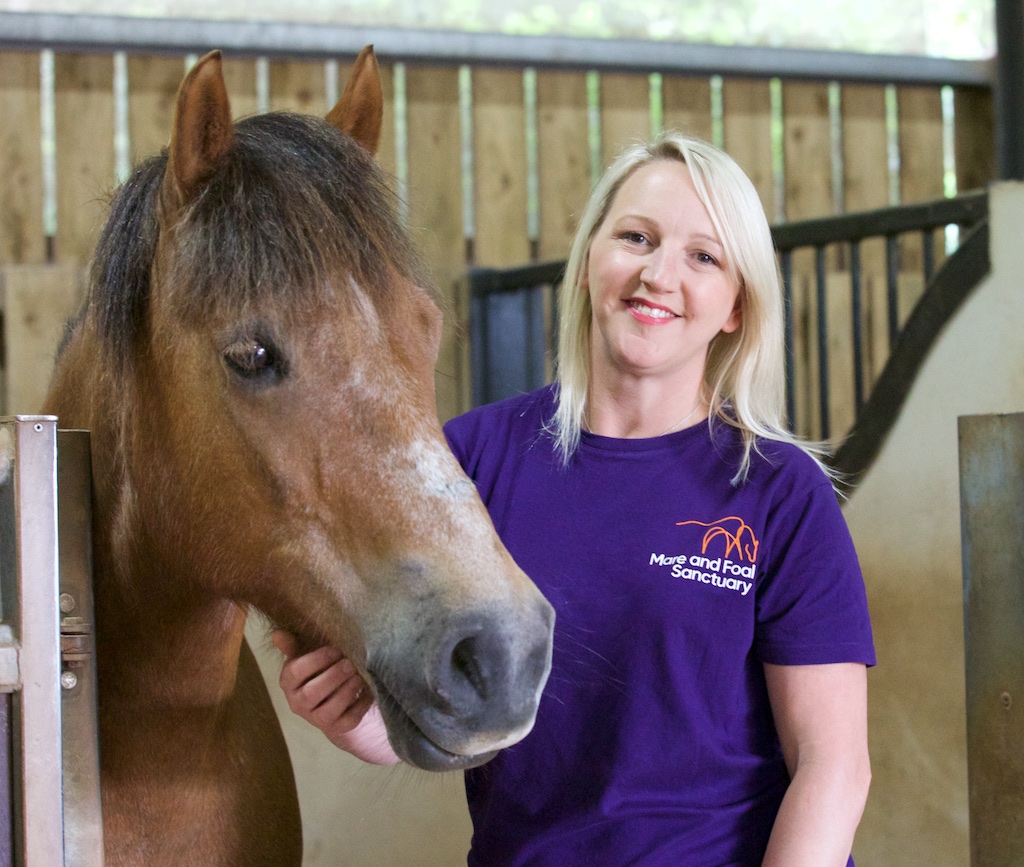
Dawn says: “I am genuinely humbled to be appointed as a director. I first became aware of this remarkable organisation nearly 20 years ago while working at The Donkey Sanctuary on a joint campaign addressing the dangers of ragwort to equines across the UK. It was then that I realised the vital role NEWC plays in uniting the nation’s most dedicated charities and organisations, advocating for the welfare and well-being of all equine species, and providing a strong, collective voice on their behalf.
“NEWC also does exceptional work in supporting a better quality of life for horses, ponies, and donkeys, drawing on the expertise and experience of the very organisations it represents. I am particularly grateful for the opportunity to serve as Director through my role at The Mare and Foal Sanctuary, an organisation that collaborates closely with NEWC.
“As a Director, I am committed to contributing to NEWC’s strategy, supporting its members, and championing equines at every level of policy and practice. My focus will be on ensuring balanced representation for horses, ponies, donkeys, and mules, advocating for the recognition of their welfare needs, and highlighting the invaluable role these animals play in society.”
Dawn joins the governance board alongside a diverse group of leaders and experts from the equine and animal welfare sector, including: Carolyn Madgwick (The Horse Trust), Ruth Court (Blue Cross), Dr Carol Hall (Nottingham Trent University), Claire Gordon (World Horse Welfare), Nicolas De Brauwere (Redwings Horse Sanctuary), Hannah Bryer (The Donkey Sanctuary), and Dr Mark Kennedy (RSPCA).
Find out more about Dawn here: Meet the Team.
Redwings is sharing more insights into some of the challenges horse owners face when trying to keep their horse(s) safe from fireworks, in a new report of further analysis from their 5,000-strong respondent survey, published here (on Tuesday 2nd September).
The Fireworks and Horses survey, which ran for five weeks between December 2024 and January 2025, attracted 5,128 complete responses from across the UK. It was developed to gather evidence of firsthand experiences and owner attitudes regarding the impact of fireworks on horses in their care.*
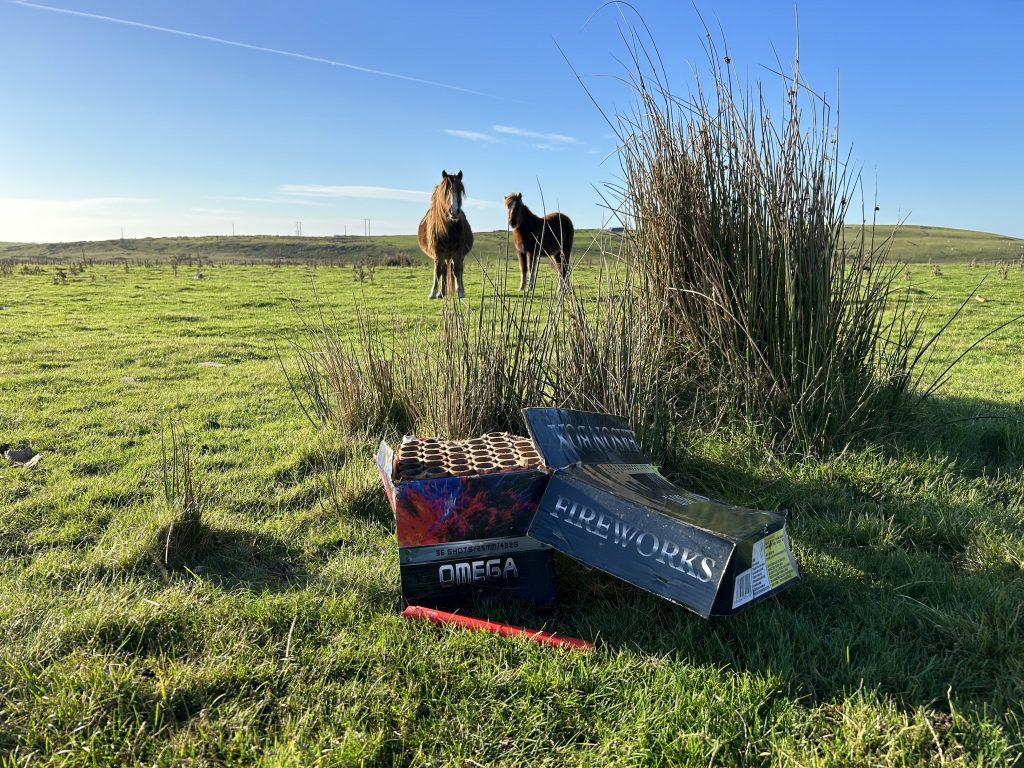
A preliminary report was published in February.
The charity says there is now compelling evidence that the ability of owners to keep their horses safe is limited when fireworks are set off nearby, even with advance notice.
And the data shows that stabled horses are still vulnerable when fireworks are set off and at risk of injury, illness or even death. A third (33%) of those horses sustaining long-term injury or illness due to fireworks were stabled at the time.
More than three-quarters of survey respondents said they put measures in place to help protect their horse(s), from bringing them into a stable and leaving the radio on, to giving calmers or sedation. The most common practical step was to provide extra food or forage to help keep the horse occupied (48%). More than half (54%) said they also stayed with their horse, while 57% carried out extra checks to monitor their well-being.
However, the data suggests that there are no simple solutions to managing horses during fireworks. Even when measures included the use of prescription sedation, they were judged to be only ‘moderately’ or ‘slightly’ effective by the majority of those who took this step (78%). There were similar results from those who had used over-the-counter calmers; almost half of the respondents who had used calmers rated their protective actions as only ‘slightly effective’ (49%).
Helen Whitelegg, Redwings’ Campaigns and Policy Manager, said: “Horse owners have limited ability to proactively protect their animals from the negative effects of fireworks being set off nearby, if indeed they are forewarned about them at all. More than 70% (71%) of Redwings’ Fireworks and Horses survey respondents whose horse had been affected by fireworks had not been aware that a display was planned.
“Nowadays, fireworks are set off all year round, which can pose a huge problem for horse owners as horses are highly sensitive flight animals that use their ability to run away from danger as their main protection from it.
“The idea that bringing horses inside, stabling them, is the answer to protecting them from fireworks is one that comes up time and time again, and it’s one of the decisions many owners wrestle with when planning.
“Half of survey respondents (50%) whose horse had been affected by fireworks said their horse was in a stable at the time, with the other half being turned out, providing us an opportunity to compare the impact of fireworks on each group.
“While the data suggests horses may be statistically less likely to injure themselves or escape while in a stable, the risk of harm or even fatality is certainly not eliminated.
“Survey findings also indicate that stabled horses may potentially be more vulnerable to distress when fireworks are let off. Reports of stress-related behaviours were higher for stabled horses in all categories apart from attempting to escape, which was around 4% lower.
“There was also a slight increase in people injured in incidents involving stabled horses (11%), over those that were turned out (9%).”
As a horse owner with several hundred equines in its care, Redwings knows firsthand the impact that fireworks can have on horses and the challenges around keeping them safe and spends hundreds of pounds each year on measures to help protect their rescued residents around Bonfire Night. The charity has sadly lost three of its resident ponies in the past because of fireworks. A special episode of Redwings’ podcast ‘Sounds of the Sanctuary’, told the story of Cinders, Sprite and Percy, which is available to listen to here.
Last year, Redwings launched their ‘Keep Horses In Mind’ campaign to encourage people to consider if, and how, they use and enjoy fireworks. To find out more about the charity’s work on fireworks, please visit: redwings.org.uk/fireworks
Retraining of Racehorses (RoR), a long-standing member of NEWC, has unveiled a refreshed welfare framework that places the welfare of former racehorses at the very heart of their activities. This update applies to all RoR competitions and mounted events and represents a major step forward in promoting responsible ownership and excellent horsemanship.

With generous support from Agria, RoR’s new welfare framework includes:
These changes reflect RoR’s unwavering commitment to ensuring the physical and psychological well-being of retired racehorses throughout their transition into second careers.
Visitors to RoR’s National Championships at Aintree this August (19–24 August) will receive printed copies of the new welfare rules and may spot rosettes being awarded to competitors demonstrating exceptional care, compassion or partnership with their horses.
Find out more about the:
👉 RoR welfare at training and competitions
👉 Updated RoR Welfare Rules
NEWC welcomes this renewed focus on education, transparency and consistent standards — values that underpin our own approach to equine welfare across the UK.
NEWC members receive 10% off the course cost!
Blue Cross has developed an accredited and award-winning CPD training programme to help individuals and teams feel more confident and compassionate when supporting equine owners through loss.
This essential five-hour CPD course is split into two parts:
🖥 A two-hour self-paced online course
🧑🏫 A three-hour live, trainer-led virtual workshop
The training will provide a deeper understanding of equine loss and grief and will equip you with the tools and confidence to navigate sensitive end-of-life discussions with clients. Topics include Quality of Life considerations, euthanasia, compassionate communication techniques, and self-care to support emotional wellbeing in professional roles.
Whether you’re working directly with owners or supporting your team’s interactions, this course offers invaluable learning and insight.
Course length: Five hours (2hr self-paced + 3hr live virtual)
Cost: £99
Date: Wednesday 10 September 2025

👉 For more information and to book your place, visit: eventbrite.co.uk/e/virtual-live-equine-loss-support-training-workshops-tickets-1067218422029
🟦 NEWC member organisations and their staff will receive a 10% discount! Email the office - info@newc.co.uk - for details.
